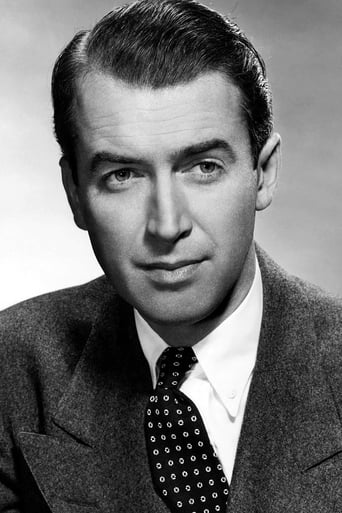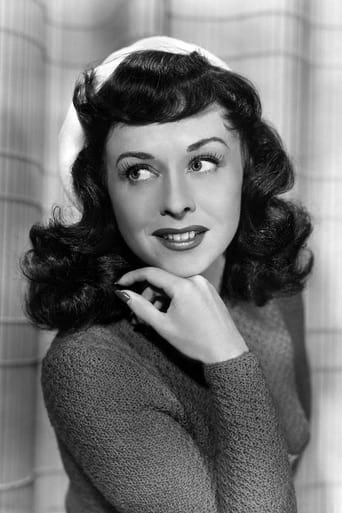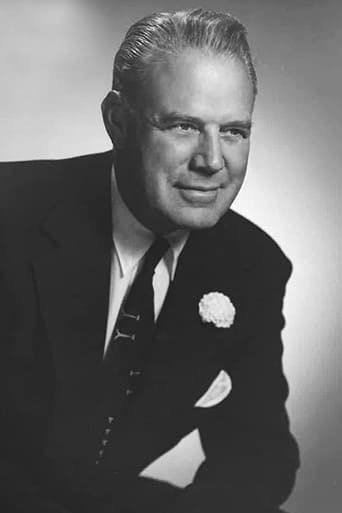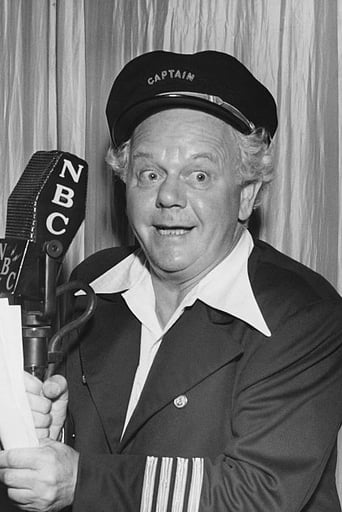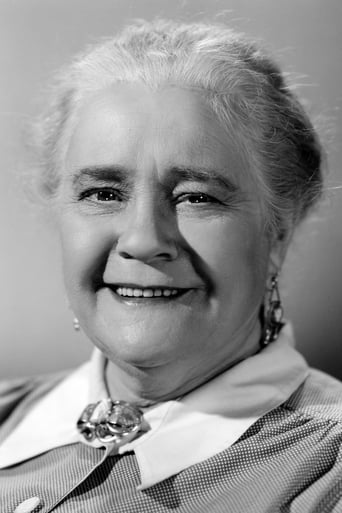weezeralfalfa
Reportedly was Jimmy Stewart's least favorite film making experience. Don't know what his problems were, but I rate it as the most fun film he costarred in that I have seen, if not exactly the most sophisticated nor publicized. Oh well, sure didn't agree with his post-war politics either.Actually, was inspired by the very popular radio show of the same name, also featuring the Heidt band here featured. The main reason for the program's popularity: giving away $1000. to some random person with a telephone, is duplicated at film's end, albeit in a much more comical initial manner. Jimmy plays his stereotypical self as a young man: an easy going, 'aw shucks', small town bachelor yokel(Jimmy Haskell) who is continuing his father's small music store, barely making ends meet. One fine day, firebrand Uncle Charlie Haskell bursts in with an ultimatum that he needs Jimmy to help with his rapidly expanding health food business and his weekly radio show, offering to make him his successor if he makes good. Well, Jimmy is none too excited about this prospect until the banker comes by with news that his music store will soon be foreclosed. So, Jimmy reluctantly sets off for the big city to join Charlie. With Charlie's big building in sight, he finds various street people singing and dancing to the music of a band on a nearby tenement rooftop. But this music drives the busy Charlie up the wall. Thus, he sends a goon to threaten the band with jail for disturbing the(his) peace. But, Ma McCorkle, who hosts the band in her boarding house below, runs out and intimidates the goon and accompanying policeman, instigating Charlie to run out to counter Ma. Molly McCorkle(Paulette Goddard) picks up a tomato to throw at the goon. But,Jimmy volunteers to do the job himself, accidentally hitting Charlie in the face instead, becoming an instant neighborhood hero. Jimmy and Molly duck out before noticed, get acquainted, and Jimmy decides to accept her offer to room with the band, she being unaware that he is Charlie's nephew. This looks like a heavenly arrangement for Jimmy, so he accepts, despite the Haskels vs. McCorkle feud he will be in the center ring with.It's decided that Charlie needs an immediate vacation in some very remote corner of the globe so that 2 problems can be remedied in his absence 1)his boring radio program designed to promote his health food products. 2) the McCorkle band needs some gigs and could use exposure on radio to make itself widely known. Music-hating tightwad Charlie flies into a rage when he tunes his radio to his program, while in remotest Canada, to discover that it's being broadcast from a nightclub, featuring the McCorkle band, with Molly singing, and $1000. of his money being given to some random person on the other end of a telephone. At one point, looks like everyone is going to end up mad at each other. But, in the finale, Charlie suddenly changes his 'tune' when he's told how popular his new program format is, with sponsors lining up, providing the makings for a happy ending for all, with a wedding suggested. No doubt, the names Haskell and McCorkle were chosen as resembling the well known Hatfield vs. McCoy backwoods feud.White-haired, ex-vaudevillian, Charles Winninger, is a riot as Uncle Charlie. Interestingly, Winninger was cast as the chief supporting male actor in each of Stewart's last 3 films, made by 3 different companies, before the latter took a long break from Hollywood to participate in WWII. Although here he is cast as hating music, he was often included in musicals, where he sometimes sang and danced a bit as a secondary musical performer. Mary Gordon, as Ma McCorkle, plays her role as a feisty , yet motherly, Irish matron to the hilt. Actually, she was born a Scot, and native Irish can tell that in her pseudo-Irish accent. Jimmy and Paulette are good in their roles, but the two feuding senior family members primarily steal the show in the dramatic comedy aspects. The other key ingredient is Horace Heidt and his Musical Knights, who were involved in all the musical numbers, as the band, singers and/or dancers. Jimmy and Paulette also sometimes participated in the musical numbers as harmonica players, singers or dancers, although they were seldom cast in films in musical roles. Actually, Jimmy had some musical background, would later star in "The Glenn Miller Story", and was technically the male star of his last '41 film, "Ziegfeld Girls" : a much more lavish, but much less fun, musical. Paulette reportedly learned some dancing for her role with Fred Astaire in the prior very slight musical "Second Chorus". She's quite good as the star singer/dancer in the one elaborate stage production :"Broadway Caballero" , in which she postures as a Latino macho man, then changes into a frilly evening gown for the last portion, which included more dancing. Most of the other musical numbers are fun, little novelty numbers, done as a group, either in informal circumstances or for the radio show. The exception is the fairly elaborate "Do You Believe in Fairy Tales": a romantic ballad, relating to Paulette's nocturnal daydream. The boarding house musical production, with the gang around the huge dinner table, is divided into several distinct segments, including a glass harmonica segment. This is truly a unique, memorable scene.Director George Marshall was a veteran from the early silent era. His experience was mostly in comedies and westerns, rather than musicalsThis now public domain film is presently available on DVD, and at YouTube
